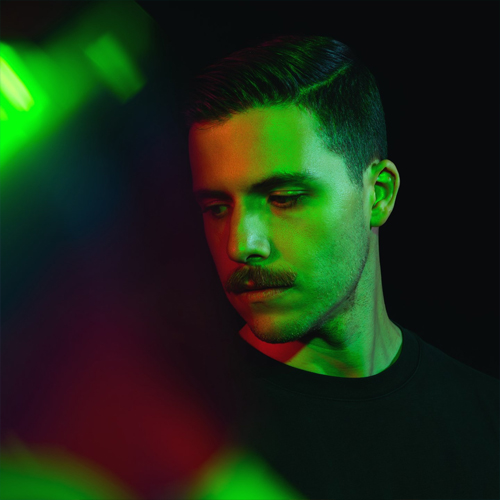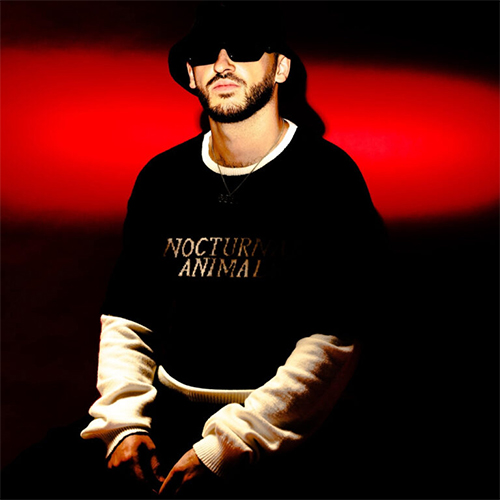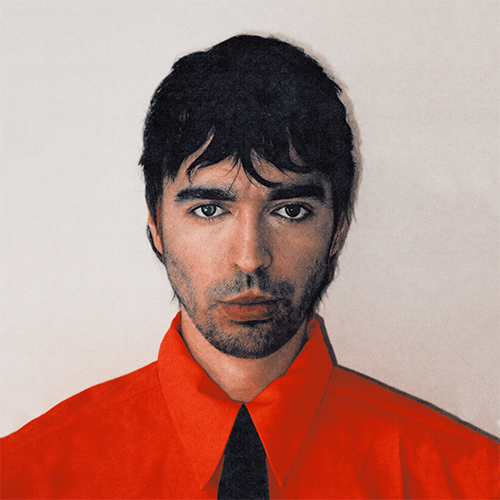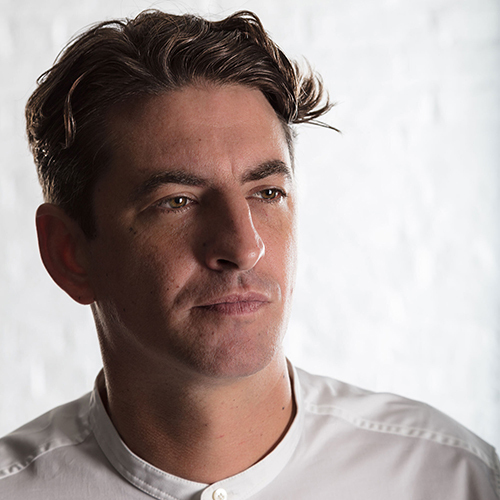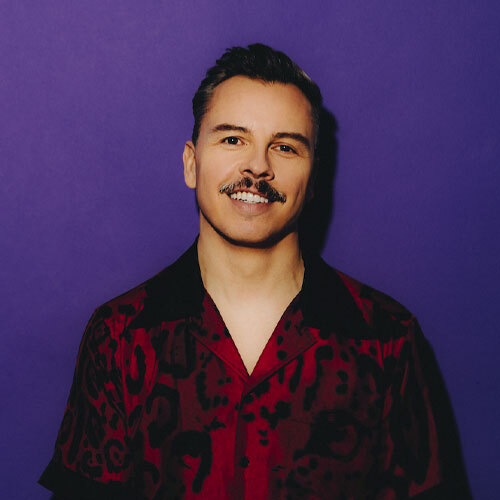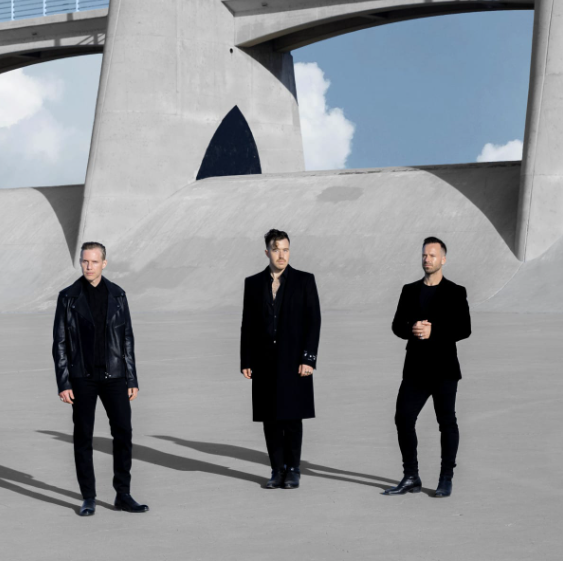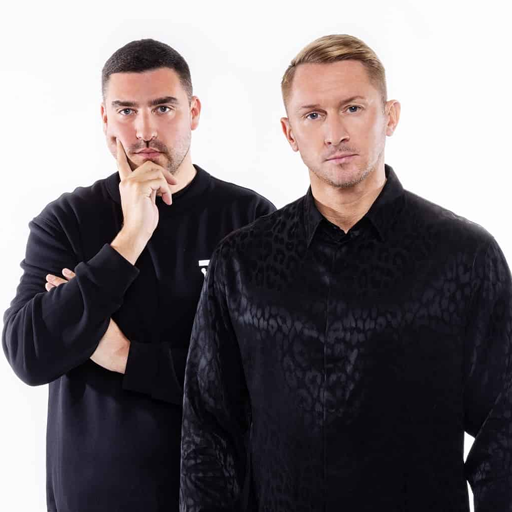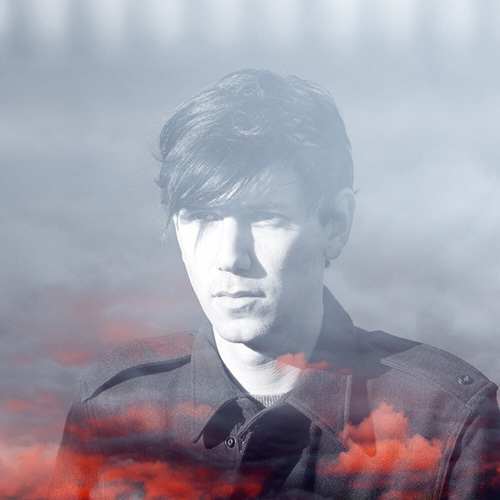
Tiga
The citizen may take a bride, but it is the rifleman who takes a lover. Ultimately we all must choose either the myth or the mountain.”
The origins of Montreal born DJ-producer-incipient Teutonic legend Tiga lie to the vague and troubling East, where he was weaned on the nefarious milk of the notorious 1980s Indian club scene. “To the unforgiving eye,” he says of the sybaritic night-kingdom, “a world of filth and decadence is revealed. For example, I’m fairly certain that more than a few club owners had an unsavory arrangement with the man who brought the folding chairs. I was at once appalled and enraptured. After that, I had no choice in the matter.”
By 1990, Tiga had returned to Montreal, prodigiously night wise and unsatisfied with the existing local club scene (calling it “the plumage of a bird I cannot bring myself to want.”) With the help of a core group of friends, he began to throw a series of small parties infused with the sense of dead-eyed ennui gleaned from a past littered with acid whores and crazed Indian gamblers. Other innovations which Tiga introduced to Montreal party culture include guest DJs, intense street promotions featuring rival gangs of street acrobats, color flyers, multi-dj sets, and leading the supplicant crowd through the innermost corridors of one’s soul.
It was this heady time of dizzying innovation and ravenous sexual ambition which culminated in the birth of 1993’s “Solstice,” generally considered to be Montreal’s first genuine rave. (A year earlier, a hyper-prescient Tiga staged “Eclectricity,” the first online rave, a project whose utter failure remains a source of bafflement: “It broke my heart, given my views on diversity. . . I am, I feel, a very interactive person.”) Tiga has since helped to orchestrate no less than ten major events, including “The Orb Live,” “Pure,” and the very first North American appearance of continental illusionist Jean-There.
In 1994, Tiga bought DNA Records, a small medical data concern, and parlayed it into Montreal’s premiere electronic music boutique. “We’ve always believed in putting the customer first, from helping you find that one minimal house record that will make your collection to offering concerned looks as you wade through the enormous backlog of test results to discover if you are in fact afflicted with a congenital disease.”
In 1996, Tiga mourned the death of actor and poet Tupac Shakur.
That same year, the Montreal dance community found a haven for the boldest feats of dance, where fools are in love with mystery and sex-valor is prized above all else. Sona (meaning literally ‘Liar-dancer’) was initially conceived of by Tiga and his two partners as “a perverse, jeering monolith, because nothing is sacred anymore” but it has evolved into much more. In addition to its place amongst the pantheon of urban groove centers, on weekdays it rents out its facilities, at a very reasonable rate, to a local program dedicated to teaching homeless men to dance properly (“I just think it’s an important project,” Tiga said at the time).
In 1998, Tiga started Turbo Recordings as an outlet for his wildman organ escapades but he soon found a host of other artists who were willing to be paid to record for him. Turbo has released over 20 albums, 2 samplers, and 12 vinyl twelve inches as well as secured global distribution with Prime, Intergroove and Caroline. Notable releases include Peter Benisch’s “Soundtrack Saga,” Christopher Handlebar’s “To a Time of Asia” and Tiga’s own “Mixed Emotions” and “American Gigolo”
The immense success garnered by “Sunglasses at Night” was just one facet that catapulted him into the international feeding frenzied world of other electronic music notables. Tiga has remixed for the likes of Martini Bros., Alpinestars, Linda Lamb, Crossover, FC Kahuna, Cabaret Voltaire, Telepopmusik, Felix da Housecat, Fischerspooner, FPU, The Devils (Nick Rhodes), and Danni Minogue. As if this wasn’t enough, he also produced remixes for City Rockers, and singles for Turbo Recordings, Intec, Drumcode, and Electrix all under his TGV moniker, which is his collaborative effort with Mateo Murphy.

